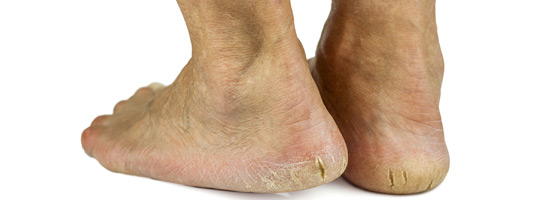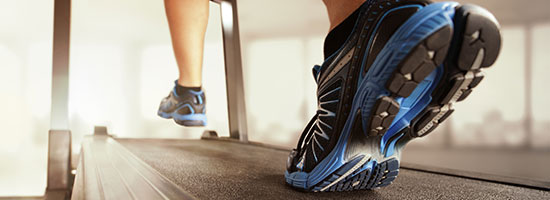
Treatments and Prevention of Cracked Heels
Fissures, also referred to as cracked heels, are a painful and common foot ailment. The fissures look unsightly and are often only a cosmetic problem, but deep fissures can split and become infected if they do not receive proper care from a podiatrist. Early treatment for heel fissures can help to lessen your risk of an infection and reduce the level of pain that you experience while standing.
Symptoms of Heel Fissures
Heel fissures typically begin as thickened areas of skin or calluses on the outer edge of the bottom of the heel. Over time, the skin thickens and the cracks deepen. Some of the dry skin may become rough and flake off. This can cause itchiness. When the cracks get deep, your heels may cause pain while you stand. Continued dryness of your skin may cause the fissures to split open and bleed. If the fissures split, there is a chance that they could become infected. An infection in the foot is a serious medical situation and requires prompt treatment from your podiatrist. If you have diabetes, it is important to regularly check your heels for signs of fissures.
Causes of Cracked Heels
Heel cracks often begin as a simple callus. Some people are prone to developing calluses due to the way that they walk or the type of shoes that they wear. If you have to spend many hours per day standing, this also increases your risk of fissures. Hypothyroidism and diabetes may also cause your skin to crack. People with eczema and psoriasis are also more likely to develop fissures in their heels.
Treatments for Heel Fissures
When the skin of your heel is badly cracked, the podiatrist may offer treatments such as antibiotic ointments. The podiatrist may also be able to shave off the calluses so they do not crack any more. If you have an infected fissure, your doctor might prescribe antibiotics to eliminate the infection.
Preventing Heels from Cracking
Maintaining moisturized skin can help to avoid fissures. Foot creams and vitamin E oil can help to keep your feet moisturized. Avoid wearing open-backed shoes, as these can exacerbate calluses and fissures. If you do have some callused areas on your heels using a pumice stone on them after you shower can help to thin the layers of dead skin so that they do not get deep enough to develop a crack.













